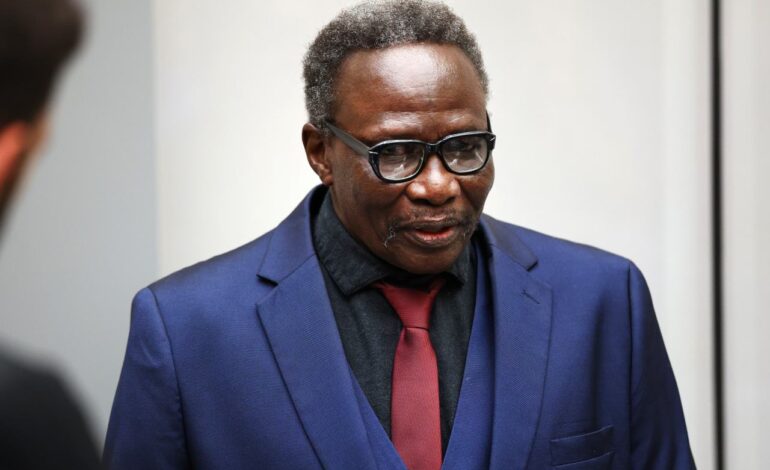International Criminal Court Convicts Sudanese Militia Leader for War Crimes

The International Criminal Court (ICC) has convicted Sudanese militia leader Abdel Raouf Abu Zaid of war crimes, marking a significant moment for the court amid ongoing challenges. The verdict, announced on October 5, 2023, comes at a time when the ICC is navigating complex political landscapes, including sanctions imposed by the United States and allegations of misconduct related to sexual assault.
The court found Abu Zaid guilty of committing atrocities during the Darfur conflict, including murder, torture, and the forced displacement of civilians. These actions occurred between 2003 and 2004, a period marked by severe violence as various militia groups clashed with government forces and rival factions. The ICC’s ruling highlights the ongoing struggle for justice in a region still grappling with the ramifications of conflict and humanitarian crises.
In a statement released after the verdict, the ICC emphasized the importance of accountability for war crimes. The court’s President, Judge Piotr Hofmański, remarked, “This conviction demonstrates our commitment to ensuring that those who commit heinous acts are held responsible for their actions.” The ruling represents one of the few successful prosecutions by the ICC in recent years, reflecting both the challenges and the necessity of international justice.
The decision has been welcomed by various human rights organizations. Human Rights Watch praised the ICC’s efforts to uphold justice in Sudan, stating that the conviction is a vital step in addressing impunity for war crimes. The organization urged further action to ensure that all perpetrators of atrocities in Darfur are brought to justice.
Despite this success, the ICC faces significant obstacles. The court has been criticized for perceived bias and inefficiency, with some nations questioning its legitimacy. Additionally, the United States has maintained sanctions against the ICC, complicating its operations and limiting its effectiveness in some regions. The U.S. government has expressed concerns regarding the court’s jurisdiction and its stance on investigations related to American personnel.
Abu Zaid’s conviction serves as a reminder of the broader issues facing the ICC and the international community’s commitment to addressing war crimes. The court has been urged to strengthen its mechanisms for prosecuting those responsible for atrocities, particularly in conflict zones where accountability remains elusive.
As the ICC continues its work, the implications of this ruling extend beyond Sudan. It raises critical questions about the role of international institutions in promoting justice and the need for global cooperation to combat impunity for war crimes. The conviction of Abu Zaid may inspire further legal actions against other individuals implicated in the Darfur conflict and similar situations worldwide.
In conclusion, the ICC’s conviction of Abdel Raouf Abu Zaid represents a pivotal moment in the fight against impunity for war crimes. It underscores the ongoing need for vigilance and support for international justice mechanisms, particularly as the world grapples with the legacy of historical and ongoing conflicts.






